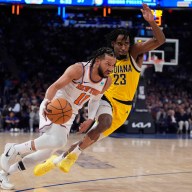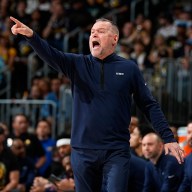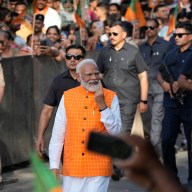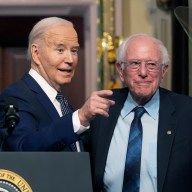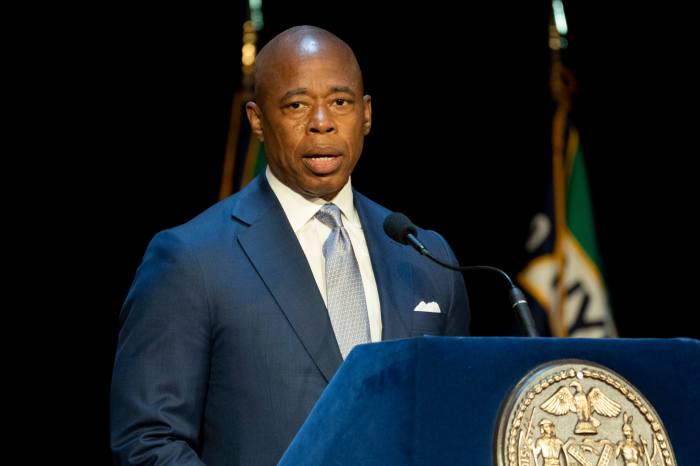The familiar Hockey Canada logo of a player skating through a Maple Leaf is not likely to be worn at the 2010 Winter Olympics in Vancouver, the president of the International Ice Hockey Federation said Monday.
Rene Fasel said a dispute over allowing national sports federations to use their logos on jerseys worn at the Games is not likely to be resolved with the International Olympic Committee before the Vancouver Olympics.
“I’m sure we’ll find a way, but for Vancouver, it will be difficult,” Fasel said at the world junior hockey championship. “But we’re working together with (Hockey Canada president) Bob Nicholson and we’ll find a way.
“You’re a strong hockey country and you’re playing in Vancouver, but it’s very difficult. It’s very political.”
The IOC began clamping down on the use of federation logos by soccer teams at the Summer Games this year and is extending that to the Winter Olympics.
An IOC rule banning the use of federation logos is 13 years old, but can be overlooked with the approval of a country’s national Olympic committee. For the past three Winter Games, the Canadian Olympic Committee has give hockey an exemption, but opted not to support hockey this time around.
Nicholson is trying to bypass the COC and appeal directly to the IOC to use the country’s traditional jersey. If that fails, he said Hockey Canada may look for other ways to have the logo present at the Games.
Jersey sales generate an estimated $20 million in the period around an Olympics.
“We’ve continued to have discussions at the IOC level and I can tell you we will make a decision one way or the other in Hockey Canada within the next 60 days,” said Nicholson. “We do appreciate where Rene is.
“He’s president of the IIHF and he’s also on the IOC (executive), and I know he’s tried his best to this point. We’ll have to see where it ends up with the final decision at the IOC.”
Nicholson said Hockey Canada will make royalties off the sale of Canadian hockey jerseys leading up the Games whether it has the logo or not, but he feels it is important to the fans and the players that the Olympic team wear familiar sweaters.
“We feel that we have a traditional marque that our players have grown up with in this country and we feel it’s the best sell,” he said. “If we have to go to another marque or design, Hockey Canada would still get those revenues.
“But look in the stands and tell me what jersey everyone’s wearing. It’s the jersey that Canadiens recognize and, more importantly to me, if you could ever be in the dressing room when the kids put on the jersey with tears in their eyes, that’s why you want it.”
One thing Fasel is lobbying for is to see NHL players continue to attend the Olympics beyond Vancouver.
The league has yet to commit to participating in the 2014 Games in Sochi, Russia.
“For me it is quite clear. We can’t miss having the NHL players coming to (Russia),” said Fasel. “The (NHL Players’ Association) is quite clear they want to go and they have the power to decide and discuss this with the NHL. …
“But I was clear there will be no World Cup of Hockey if there are no pros in the (2014) Olympic Games.”
A stubling block may be the lack of a transfer agreement between the NHL and the Russian federation, along with ill-feelings about players bolting to the Russian-based Kontinental Hockey League.
Fasel also voiced cautious support for having the world junior championship in Canada every year. It is currently held here every three years, although an extra event was given to Canada for 2010 because no other country bid for it.
Regina and Saskatoon will host next year.
Attendance and TV audiences skyrocket when the event is held in Canada; in other countries, it tends to draw sparse crowds.
Fasel said bringing the tournament permanently to Canada, or a least the North America, may be accepted by other countries if some of the revenues are shared to cover travel and other costs.
“I was following some junior tournaments in Europe and when you have teams playing in front of 42 spectators, or 72, it’s really sad,” said Fasel. “Especialy for the boys playing.
“Coming here and playing front of 19,000 people, for boys from Kazakhstan or Slovakia, this is a lifetime experience they’ll never forget.”

